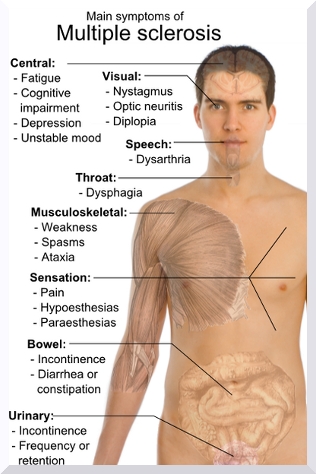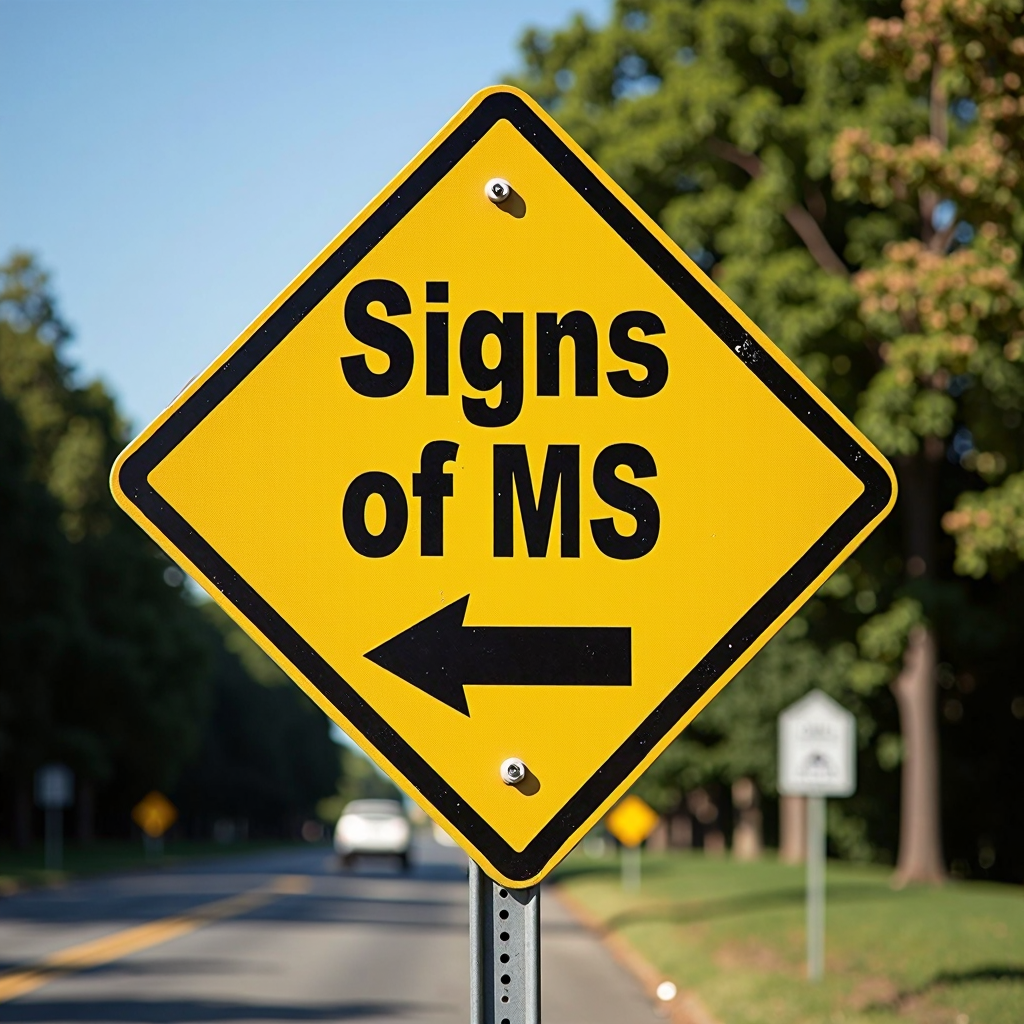Signs of Multiple Sclerosis
There are many signs of multiple sclerosis – the list is a long one. You can experience everything from optic neuritis to tingling in your toes and fingers. You can have several symptoms or just a few depending on where the lesions are in your brain or spinal cord.
Multiple sclerosis (MS) is a complex condition, and its symptoms can vary widely from person to person. Some people experience mild symptoms that come and go, while others face more severe challenges that impact daily life. The unpredictability of MS is one of the most frustrating aspects—it can affect vision, movement, cognition, and even emotions. If you’ve been noticing unusual symptoms, it’s natural to wonder if MS could be the cause.
Understanding the Signs of MS
The list of possible MS symptoms is long, and no two people experience the disease in exactly the same way. Some may have optic neuritis, a condition that causes painful vision loss, while others may struggle with tingling sensations in their fingers and toes. Some people experience muscle weakness, while others deal with cognitive fog that makes it hard to concentrate.
If you’re reading through these symptoms and recognizing some of them, it doesn’t necessarily mean you have MS. Many other conditions can mimic MS, leading to misdiagnosis or uncertainty. That’s why it’s important to talk to your doctor if you’re experiencing persistent or unexplained symptoms.
How MS Affects the Body
MS is an autoimmune disease that targets the central nervous system (CNS), which includes the brain, spinal cord, and optic nerves. The immune system mistakenly attacks the myelin sheath, the protective covering around nerve fibers. When this happens, nerve signals slow down or get blocked, leading to a wide range of symptoms.
Over time, the damage to the myelin can cause scarring (sclerosis), which disrupts communication between the brain and the rest of the body. This is why MS symptoms can affect movement, sensation, vision, and even thinking.
Common Signs of MS
Here’s a breakdown of some of the most common symptoms associated with multiple sclerosis:
Vision Problems
- Optic neuritis – inflammation of the optic nerve, causing pain and vision loss
- Blurred vision – difficulty focusing or seeing clearly
- Double vision – seeing two images instead of one
Muscle and Movement Issues
- Muscle weakness – difficulty lifting objects or walking
- Imbalance and unsteady gait – feeling off-balance or stumbling
- Tremors – involuntary shaking in the arms or legs
- Spasms and spasticity – muscles tightening uncontrollably
Nerve-Related Symptoms
- Paresthesias – tingling or “pins and needles” sensations
- Pain – nerve pain that can feel like burning or stabbing
- Numbness – loss of sensation in certain areas
Cognitive and Mental Challenges
- Memory loss – difficulty recalling information
- Concentration issues – trouble focusing on tasks
- Cognitive impairment – slowed thinking or problem-solving difficulties
Speech and Communication Problems
- Slurred speech – difficulty forming words clearly
Bladder and Bowel Dysfunction
- Bladder problems – frequent urination or difficulty emptying the bladder
- Bowel problems – constipation or loss of bowel control
When to See a Doctor
If you’re experiencing multiple symptoms from this list, it’s important to talk to your doctor. They may refer you to a neurologist, a specialist who can perform tests to determine whether MS is the cause.
Some of the tests used to diagnose MS include:
- MRI scans – to look for lesions in the brain and spinal cord
- Lumbar puncture (spinal tap) – to check for abnormalities in cerebrospinal fluid
- Evoked potential tests – to measure how quickly nerve signals travel
Getting a Second Opinion
If your doctor dismisses your concerns or doesn’t seem knowledgeable about MS, don’t hesitate to seek out a second opinion. MS can be difficult to diagnose, and some doctors may overlook early symptoms or mistake them for other conditions. A neurologist with experience in MS can provide a more thorough evaluation. They will be able to rule out other conditions with the tests they perform.
Even if your symptoms don’t lead to an MS diagnosis right away, keep track of them. If they worsen or new symptoms appear, follow up with your doctor. MS is often diagnosed over time as patterns emerge.
Living with Uncertainty
Waiting for answers can be frustrating, especially when symptoms interfere with daily life. If you’re in the process of seeking a diagnosis, focus on managing your symptoms as best as you can.
- Stay active – gentle exercise can help with mobility and fatigue
- Eat a balanced diet – proper nutrition supports overall health
- Manage stress – meditation, breathing exercises, or therapy can help
- Connect with others – support groups can provide encouragement
Not a Complete List
This is by no means a complete list of the signs of MS. If you have one or several of the symptoms in the list above, again, check with your doctor. Tell him or her about your experiences and concerns. They will be able to decide if a referral to another specialist is necessary.
A Few Final Words about the Signs of Multiple Sclerosis
MS is unpredictable, and no two cases are alike. If you suspect you may have MS, advocate for yourself—ask questions, seek medical advice, and don’t ignore persistent symptoms. Whether you’re newly diagnosed or still searching for answers, you are not alone.
The Cleveland Clinic shares this list of 4 early signs of multiple sclerosis you shouldn't ignore. (Link will open in a new window).
Dear Friends,
"Life in Spite of MS is a participant in the Amazon Services LLC Associates Program, an affiliate advertising program designed to provide a means for sites to earn advertising fees by advertising and linking to Amazon.com. We're also part of the Ebay Partner Network, another affiliate program."
We'd also like you to know it doesn't cost one cent more when you click through the links here on our blog. Not one single penny. And we will make a little extra cash when you do click through. We'll be ever so appreciative. You also have our word that we'll only link to things that we would use ourselves, (or wish we could have or use).
Sincerely,
Cir & Akrista
You are reading original content written by Akrista or Cir L'Bert of Life in Spite of MS. If you enjoyed reading this blog, please consider following us on Facebook, Twitter, Pinterest, and Instagram. See you there!
Privacy Policy ~ Advertising Policy ~ Disclaimer ~ Contact Us ~ About Us




New! Comments
Have your say about what you just read! Leave me a comment in the box below.